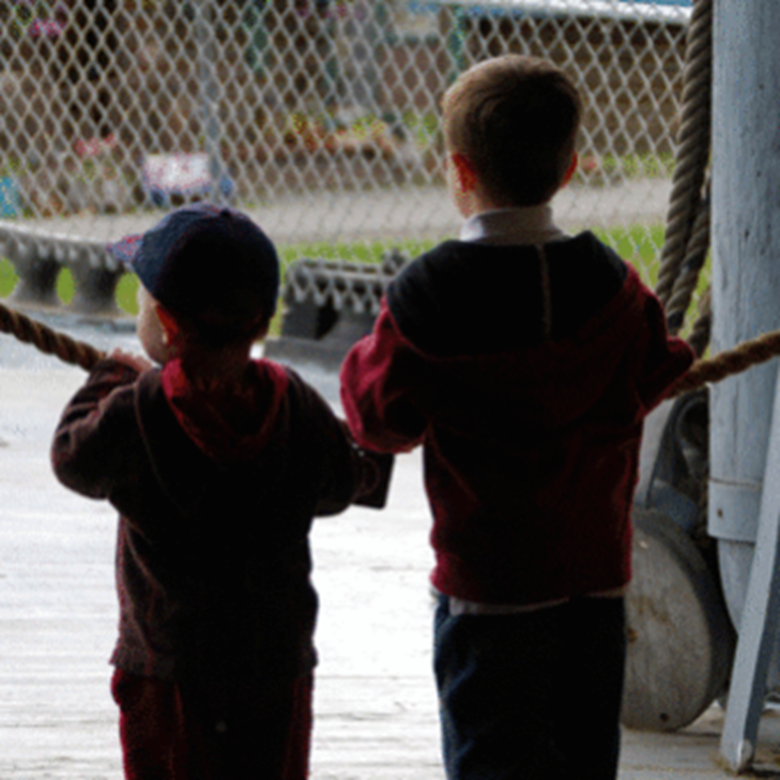Fears raised over ‘damaging' special guardianship placements
Neil Puffett
Tuesday, September 15, 2015
Vulnerable children are being placed in inappropriate arrangements due to a preference among family judges for special guardianship orders (SGOs) over adoption, it has been claimed.

Research commissioned by the Department for Education suggests that there is a desire among family courts to push for a placement within the wider family as a result of legal rulings from 2013 calling on local authorities to provide evidence that all alternatives to adoption have been considered.
The report states that SGOs, which are used predominantly to give relatives of a child legal responsibility for their upbringing, are sometimes being granted to carers who are not members of the extended family and who have no existing relationship with the child.
It gives the example of an SGO that was, against the advice of the local authority, made to a woman who was not a relation of the child but sat in the same pew at church as the grandfather.
One social work manager said there was a “family at all costs mentality” in the courts at the moment with “wholly inappropriate” orders being made.
“The consequences for that child are long-term and can be extremely damaging,” they said.
Another manager told researchers that “more fragile” SGO assessments are being sanctioned by the court.
The concerns coincide with the tragic case of 18-month-old Shi-Anne Downer, who died earlier this month. The child's special guardian has been charged with murder.
Hugh Thornbery, chief executive of Adoption UK, and a member of the Adoption Leadership Board, described the situation as “really worrying”.
“I hear a lot of anecdotes about inappropriate SGOs being made. It seems we might be making decisions that are not in the best interests of children,” he said.
Thornbery said there is a need for greater understanding of guidance around SGOs.
“We need to be absolutely clear about the research and evidence about the risk factors in terms of SGOs," he said.
"One of the biggest risk factors is where children are placed with those with no existing relationship, and the evidence is that children are being placed with people they don’t know. I would expect the disruption rate for SGOs to rise over what’s gone on in the last 12 months.”
Alison O'Sullivan, president of the Association of Directors of Children's Services, said it is important that SGOs are decided as “carefully and thoroughly” as any other permanence order, or there is a risk of the placement breaking down.
“Our greatest concern is where there are significant issues about the ability of a family to care well for a child and there is a need for extensive support – the risks of disruption are going to be great in those fragile arrangements,” she said.
“In some cases aspects of support that are available in adoptive placements need to be available to special guardians or long-term foster carers."
According to latest Adoption Leadership Board statistics, between January and March this year 850 adoption placement orders were granted by the courts compared with 1,550 between July and September 2013, a drop of 45.16 per cent.
Conversely, the number of SGOs made is on the rise. In 2014 a total of 3,300 were made, compared with 1,290 in 2010.
Education Secretary Nicky Morgan was quizzed by the education select committee last week on the drop in adoption placement orders.
She said the decline was a result of two judgments handed down by the Family Court last year – understood to be Re B and Re B-S.
“The judgments, I think, made those involved in the adoption process perhaps more nervous to question, to slow down the process and we felt that wasn’t particularly the way that we wanted to see the process develop,” she said.
“This is not a numbers game. This is about finding children permanent loving homes and making sure that if there are other family members then that option is considered."
A DfE spokesman said: “Every child deserves a stable home and we remain deeply committed to find loving permanent families for all children who cannot stay with their parents. SGOs are an effective way of providing this for many children.
“Councils have told us the way they use SGOs has evolved over the ten years since their introduction, including a rise in orders for younger children in more recent years.
"That is why we are taking the opportunity to ensure SGOs are only used in the right circumstances, as well as reviewing the existing good practice and support available for special guardians. We will report back in due course.”
Read the full analysis in the current edition of CYP Now or click here.




